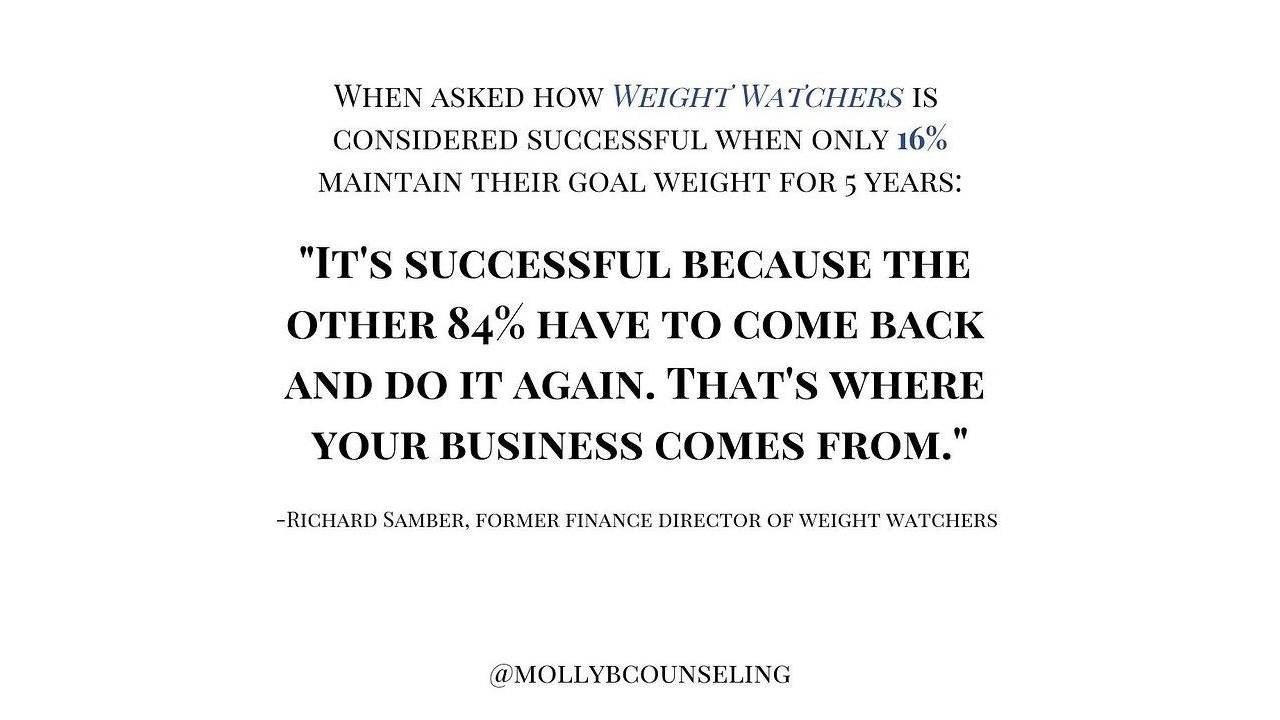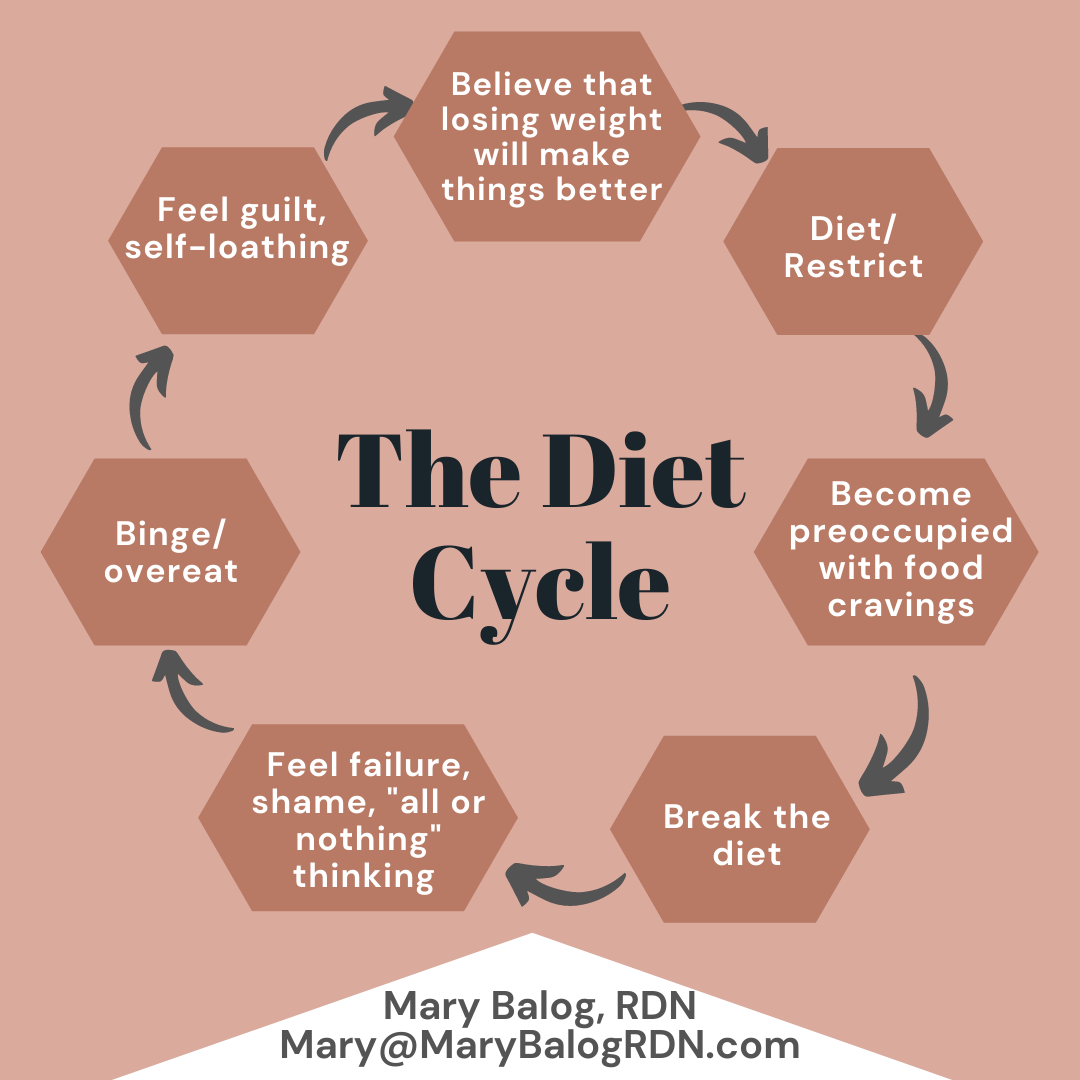29 Mar, 2022
So far I’ve introduced a little about the “non-diet” approach , as well as the Diet Cycle , which many people find themselves stuck in when using a restrictive “diet” approach to food and health. For some of those people, the idea of eating what they love and “giving up” on diet or weight loss doesn’t seem like an option, understandably. We face a LOT of pressure, day after day, to eat “clean” and lose weight. That pressure may come from well-intentioned family, friends, and healthcare professionals who are concerned about our health (more on that later); or from fear-inducing headlines that compare sugar to poison; or from photo-shopped & face-tuned ads on Instagram of celebrities selling their flat tummy tea or shapewear. We are surrounded by Diet Culture, and are forced to engage with it- no matter if it’s coming from our loved ones, acquaintances, coworkers, or even strangers. What exactly is Diet Culture? You might have an idea just from the sound of it... Messaging that promotes diet & weight loss. Right? It’s actually more than that. Here’s a definition from Aubrey Gordon, author of “What We Don’t Talk About When We Talk About Fat”: Diet Culture: “A system of cultural beliefs and practices that equates thinness not just with health, but with moral virtue, and which advocates for weight loss at any cost. Diet culture isn’t just a matter of being on a diet, but of the social forces that make dieting (or lifestyle changes or wellness) culturally mandatory for so many of us.” The key phrases are “moral virtue” and “weight loss at any cost”. Diet culture doesn’t only convince us that weight loss is necessary (to be beautiful, to demonstrate our worth, or to be healthy); but it creates this pressure that we are MORALLY obligated to do so. In order to be perceived as good, responsible people, Diet Culture urges us to pursue weight loss at any cost- which could mean sacrificing our social life, a significant amount of money on supplements or meal replacements or programs, our emotional wellbeing, and even our physical wellbeing. Maybe diet and weight loss aren’t so healthy after all… And while this may not be everyone’s experience, we have research that demonstrates the following emotional impacts of restrictive dieting: Dieting is associated with higher anxiety levels (Kwasnicka, 2020) Dieting is associated with poorer emotional and mental quality of life (Burns etal, 2001) Dieting is linked with reduced life satisfaction (Esch and Zullig, 2013) Further, restrictive dieting has actually been found to cause weight GAIN. To be clear, weight gain is nothing to be ashamed about (bodies change!); but if the multibillion dollar diet industry is selling a diet plan for weight loss, they’re not exactly being honest about the likely outcomes. 1⁄3 to 2⁄3 regained weight within 1 year, with almost all weight regained within 5 years (1992 NIH Consensus) Most weight is gained back within 2 years and most gained back all the weight by 5 years (2013 Australian Research Council) A team of UCLA researchers reviewed 31 long term studies on the effectiveness of dieting and concluded that dieting is a consistent predictor of weight gain —up to two-thirds of the people regained more weight than they lost (Mann 2007) This quote from Weight Watchers former Finance Director sums it up pretty well:






